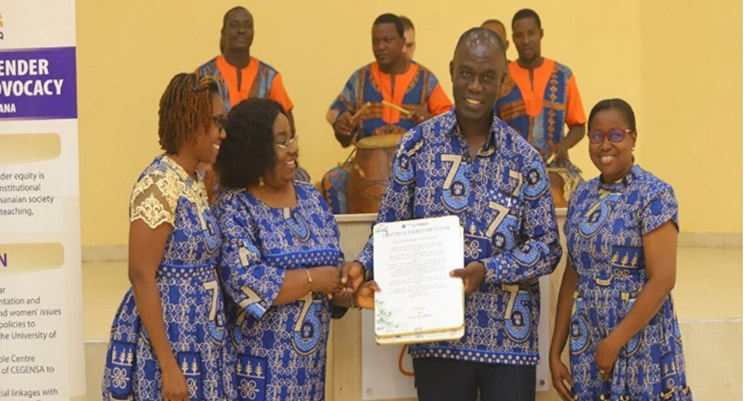Prof. George Boateng Kyei: advancing HIV research in Africa

In his EDCTP-GSK Senior Fellowship, Professor George Boateng Kyei of the Noguchi Memorial Institute for Medical Research, University of Ghana, has not only advanced the search for an HIV cure but also strengthened research capacity across Ghana and the broader African region.
Addressing HIV persistence
HIV remains a pressing public health issue in Africa, with persistent challenges hindering the quest for a cure. This fellowship project focused on one such challenge: the virus’s ability to remain dormant within resting CD4+ T cells, even among individuals receiving antiretroviral therapy (ART). By exploring the innovative “shock and kill” approach, the research aimed to reactivate latent HIV and target infected cells for destruction. A notable scientific achievement was the identification and confirmation of three novel epigenetic compounds capable of reactivating latent HIV from virologically suppressed individuals. These findings pave the way for future studies in animal models, with the potential to transition into clinical trials aiming at finding a cure for HIV.
Strengthening research infrastructure
The establishment of a drug screening platform at the University of Ghana stands out as a long-term asset for HIV drug discovery and cure research. Additionally, the project introduced regular viral load monitoring for a substantial cohort of patients—an essential practice previously not standard in Ghana. The data generated from this monitoring has been instrumental in shaping national HIV treatment policies and improving patient care.
Furthermore, the project developed a biobank and a well-characterised cohort of HIV-infected adults, providing invaluable resources for ongoing and future HIV cure research. Insights gathered from patients regarding their perceptions of HIV cure research will inform the design and conduct of subsequent studies in Ghana and across Africa.
Training the next generation of researchers
The impact of the fellowship extends beyond laboratory accomplishments; it has significantly influenced research training and career development. The fellowship helped nurture the growth of junior scientists, many of whom have evolved into independent research leaders, securing competitive grants and fellowships, such as the IAS Research-for-Cure Academy and NIH R21. They have presented their findings at prestigious international conferences, including the African Virology Congress and the American Society of Tropical Medicine and Hygiene (ASTMH).
Post-doctoral fellows have notably received fellowships from esteemed international programmes, such as the Science by Women Fellowship and the NIH CFAR Africure award, showcasing their growing prominence in the research community.
Recognition and awards
Professor Kyei’s mentorship has not gone unnoticed; in April 2024, he received special recognition from the University of Ghana’s Centre for Gender Studies and Advocacy (CEGENSA) for his outstanding mentorship of female academics—an honour highlighted by nominations from his own mentees. The project also celebrated the achievements of its team members, with one post-doc winning Best Senior Research Fellow at the 2024 NMIMR Awards and research assistants earning accolades at the 2024 African Virologist Conference.
Professor Kyei’s research has led to significant international visibility, with his team members winning travel awards to attend prestigious conferences, including the Keystone Symposium and the African Virology Congress. These opportunities have allowed them to present their findings and collaborate with global experts in the field.
Expanding horizons
The EDCTP-GSK Senior Fellowship grant has facilitated the groundwork for additional projects, including a newly awarded Fogarty grant aimed at enhancing HIV basic science and cure research training at the University of Ghana. This grant will train 17 researchers over the next 5 years, further strengthening the research landscape in Ghana.
As the team looks to the future, plans are in place to expand research into HIV reservoir characteristics among virologically suppressed patients across Ghana. This extension not only continues the momentum generated by the EDCTP grant, but also reinforces Ghana’s position as a leader in HIV cure research in Africa and contributes to the global effort to eradicate HIV.
